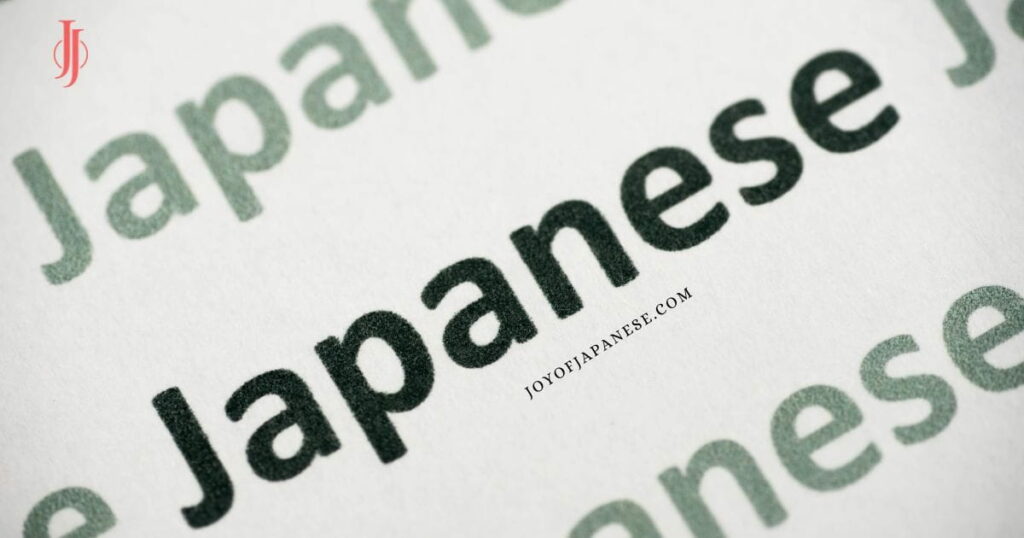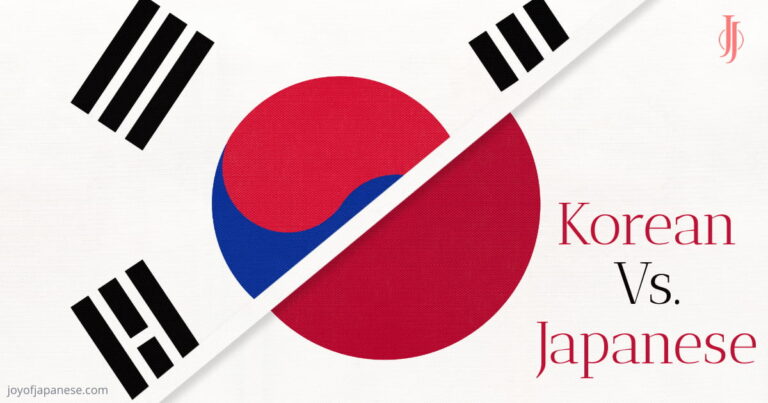We often think of Japanese as one of the hardest languages in the world, mainly for speakers of European languages like English. This is because it has the stature of being difficult and scary for learners.
Learning any language takes time and lots of study. This is a complex and challenging process. Isn’t it?
And just like any other language in the world, Japanese has its own set of challenges. So, what is unique about this language that makes it so tough to understand?
Could this be a myth, fallacy, wrong perception, or stumbling block? Is there a clear truth backed by strong proof and research? And how complicated and easy is it?
The first question that naturally arises is how tricky the learning process would be. That is why you are here, reading this, right?
Let us decode and examine every aspect of the process for you so that it can help you understand how difficult or easy it is to learn Japanese.
TABLE OF CONTENTS
- Is it worth learning Japanese despite the difficulty?
- Things to know before you start studying Japanese
- Is Japanese more challenging than other languages?
- What actually makes Japanese hard to learn?
- A few final thoughts
Is it worth learning Japanese despite the difficulty?
There are many reasons lots of people are interested in learning Japanese. Other than setting you apart from the crowd, it is beneficial in various ways.
The prosperous economy of Japan fascinates some people. Many also want to learn the language to advance their careers requiring Japanese.
The charm of J-drama may have piqued your interest in this east-Asian language. You’ve probably heard some catchy J-pop lyrics and anime dialogues and are curious about what they mean.
Japan’s financial and business market and culture have always been at center stage. And it is continually growing around the world. So, it puts the Japanese language in high demand and is trendy to learn.
Learning the Japanese language will also deepen your understanding of Japan and Japanese!
You are more likely to receive one of the scholarships for studying in Japan if you know the local language.
Japanese is one of the most influential and popular languages globally if your goal is Japan or places with sizeable Japanese speakers. Or if you wish to study, work there, or visit the country as a tourist?
Japanese can be helpful in these scenarios.
Once you learn Japanese, you will have many career options at your disposal. You may also find a job in another field if you are unsatisfied with your current position.
Wouldn’t that be a good motivation and incentive to explore the captivating world of the Japanese?
Now, let’s move to the next part!

Things to know before you start studying Japanese
Before learning Japanese, check your long-term goals and plan for this language.
Would you like to study Japanese to watch J-Drama and listen to music without subtitles? You may also be interested in learning Japanese to watch movies.
Are you thinking about studying Japanese to broaden your career prospects? Do you aim to communicate fluently in the language for professional reasons?
Depending on the answers to these questions, your language learning journey will be more challenging or easier.
You can learn familiar words, phrases, and alphabets, i.e., Japanese characters like “Hiragana” and “Katakana,” in a few days or weeks. And you will read some text soon!
But to become a Japanese translator or interpreter or learn Japanese to watch TV series in the original language may demand years of study.
Many other factors, such as your mother tongue, inspiration level, and study habits, also define how difficult or easy Japanese will be for you.
For this reason, the question, “Is Japanese a complex language to learn?” doesn’t have a conclusive answer.
How is it different from other languages?
The origin of the Japanese language is a mystery to linguists and historians worldwide.
The initial script was an adaptation of the Chinese writing system. And it also had some amount of China’s influence on its vocabulary.
But there is no evidence, according to the linguists, to prove that they share a common origin.
Although it seems unique, a closer look reveals similarities between it and some languages you might know.
Japan’s languages vary from most other languages. For instance, some languages, mainly African and European, like English, follow SVO, i.e., the Subject—Verb—Object pattern.
Japanese tracks SOV, Subject—Object—Verb. Many Asian languages, like Indian languages, follow the same pattern.
As an outcome, it would be an advantage to learn Japanese for speakers of those languages.
Another distinct point compared to European languages is the script. For example, the Japanese use three writing systems to communicate on paper: Hiragana, Katakana, and Kanji.
For instance, the Japanese alphabet (writing system) comprises 92 letters. This includes Hiragana and Katakana, syllabaries that each contains around 46 characters.
And then we have Kanji, which has well over 50,000 characters. Of course, the original script included more characters. Now, most are defunct and no longer relevant.
Still, today, you need roughly 2,000 to understand most of the speaking and written Japanese. And each character has a unique meaning and pronunciation.
This differs from the 26 alphabets of Latin-based languages like English, French, and German. Most alphabets vary between 20 and 75, but it isn’t big enough compared to Japanese.
Only logographic-type languages like various Chinese and Japanese have thousands of symbol-like characters still in use.
Hiragana is almost only used to write words that are only spoken in Japan. Katakana is to identify the terms “loan” and “foreign” that aren’t native to Japanese.
This employs Japanese-spoken sounds to imitate foreign-sounding terms, such as “Hotel” becoming “Hoteru” (ホテル), “Radio” into “Rajio” (ラジオ), etc., since those are natural Japanese sounds.
It has a strong resemblance to the original term.
Also, most European languages use a speech pattern that stresses the syllables. In contrast, the Japanese focus on the rising or falling pitch differently.
The Japanese language and culture emphasize formal and informal speech patterns. Honorifics add a layer of complexity but are a vital characteristic of many languages, including Japanese.
One must use formal conversation when speaking to a stranger or someone older (Keigo). However, one can use a casual tone with friends or juniors (Kudaketa Nihongo).
Japanese may resemble its immediate neighbors, Chinese or Korean, compared to African, West Asia, and European languages. Yet, there are significant differences even among them.
Japanese and Korean scripts and writing differ. However, Chinese inflections and grammar differ from those of the Japanese language.

How long does it really take to learn?
We can only generalize the time it takes to learn Japanese to some extent. The specifics depend on your pace, approach, and time.
If your goal is to learn conversational Japanese. Then, at which level can you ask for information and comprehend it?
Go shopping, read commercials, and have small discussions about everyday topics. Enjoy TV shows, understand a bit, and respond to emails with the help of a dictionary.
So on, this would ideally take around 6 to 12 months.
To be completely fluent in Japanese, i.e., talk about almost anything. Further, read books with a sophisticated or technical vocabulary and speak in public without fear.
This is like achieving the near-native level, like JLPT N1 or NAT-TEST Q1.
It would take much longer to do this—approximately 3 to 5 years, possibly more if you aren’t disciplined in your studies.
Japanese speakers at advanced levels think and even dream in the language. You know thousands of Kanji other than Hiragana and Katakana.
You can still speed up the learning process with more steps than just learning. Practicing constantly is the easiest and quickest way to become proficient in the language.
First, one needs to assess how long it will take to learn Japanese in your particular situation.
Then, it would help to establish how many hours you are ready to devote each day. The more dedicated time you give, the faster the procedure.
You will learn Japanese faster if you immerse yourself in it.
For example, watching shows and talking with native speakers or fluent learners or listening to a Japanese podcast. This helps improve your conversational talents. You can also try some good apps to learn Japanese.
This is because it gives your brain the auditory practice required to identify speech patterns and pronunciations authentically.
On a side note, learning Japanese depends on your first or mother tongue and whether you are bilingual.
Having prior experience learning a second language and having your first language as something closer to Japanese also affects the total time taken.
It is not very difficult to find resources to help you learn.
This is because Japanese is a prominent and widely taught language globally. Thus, locating books, apps, books, and online study materials in the language is simple.
You can also find Japanese songs, anime, flicks, TV shows, etc., with English subtitles on YouTube. Many other online streaming channels and websites have plenty of Japanese content.
Is Japanese more challenging than other languages?
The same question baffles many. So before taking the plunge, it’s obvious to wonder if Japanese is one of the most tricky languages to learn.
It is the right thing to do because of the possible learning curve and difficulties you will encounter. Knowing everything in the beginning allows you to learn this language successfully.
If you’re watching Japanese TV shows, you will appreciate it if you have a fundamental understanding of the language.
Let’s ask again: Is Japanese a difficult language to learn?
All languages are hard in some way. Some are more demanding, and some are relatively easier. Yet, all have their own share of difficulties.
A language in itself cannot be viewed as hard. Still, Japanese is widely perceived as challenging.
Instead, the ease or difficulty of learning a language is more determined by several factors, such as your native language, demographics, interests, time spent, learning approach, and commitment.
For example, Japanese is difficult to learn for speakers of languages based on Latin scripts. This is because of its stark difference in structure and sound compared to English and other European languages.
The Hiragana, Katakana, and Kanji writing system is unlike anything you’ve ever seen. The words sound unique. As an effect, everything differs from your mother tongue language.
This may not be the case for people from China and Korea, as their native language is a little different from that of Japan. But don’t get carried away. Japanese, Mandarin, and Korean are three distinct languages.

Who says the Japanese language is difficult?
The US-based FSI study found that Japanese falls into category IV for native English speakers.
They categorize this language as a “super-hard language.” Others in this group are Arabic, Korean, and two Chinese—Mandarin and Cantonese.
So, a learner needs 88 weeks or around 2,200 hours of study to reach the higher levels of Japanese Proficiency tests like the NAT or JLPT exam.
The advised 1:1 self-study would need about 4,400 hours to achieve the advanced level.
Although learning Japanese isn’t impossible, it’s not a piece of cake either. So the short answer is, yes, it is hard, but it is doable!
If I have to outline the difficulty level of Japanese. I would say this is not a language that you should take lightly. Gaining anything noteworthy without giving plenty of time and hard work isn’t effortless.
What actually makes Japanese hard to learn?
The notable differences between Japanese and other languages make Japanese complex. So, to learn this language, you must study the lengthy writing system and how to use it.
The three different alphabets in Japanese. Kanji, which comprises a few thousand, is valuable today.
We use katakana for emphasis. Hiragana, useful for spelling suffixes and grammar, is distinct in both look and sound compared to English. Both are also phonetic.
In English, vowels and consonants are treated independently (many letters have several pronunciations). Yet, phonetic alphabets are always written and spoken similarly.
Kanji is a pictographic script. Rather than representing a sound, each sign, or Moji, represents a notion. So, these symbols can have a variety of pronunciations or readings.
Japanese have a broad vocabulary due to adopting many foreign terms in producing neologisms.
It has many borrowed words from English, but these are still ‘Japanese’ in their sound. The consonant-vowel pattern is used for English loanwords in Japanese.
As a result, English consonant clusters, such as the ‘dr’ in “drive,” are sure to have more vowels inserted in the center. In this situation, the letter’ d’ is pronounced with an extra vowel as ‘do.’
We use no consonant after a word (except for n) in Japanese. Thus, if an English borrowed word ends in a consonant sound (e.g., “mic”), the Japanese counterpart will almost certainly include a vowel: Maiku.
The grammar of Japanese can be simple on a broad level. There are a few particles to know. But verb conjugations are the most crucial part of Japanese grammar to master.
This is straightforward once you grasp the basics. While it may seem tricky initially, it is simple to understand, with only a few exceptions. Grammar textbooks and classes can help immensely.
What most people find difficult is the honorifics.
Japanese culture and language both place extreme importance on politeness and hierarchy in social and business conversations.
Understanding when to use the formal tone (Keigo) and the informal tone (Kudaketa Nihongo) becomes imperative.
In a business setting, Keigo can get tricky. Still, listening and practicing will help you correctly identify and use the tones.

Some easy aspects of the language
We pronounce each Japanese word with only five vowels and a few basic consonants.
Japanese is also totally phonetic. You can write any word or sentence in the language if you know at least one of the Kana syllabaries.
There are no “masculine,” “feminine,” or “neuter” nouns in Japanese. All nouns are gender-neutral. It implies you would not have to change the sentence.
There are many verb tenses to master in Japanese and varying levels of formality to consider. Still, you do not need to conjugate verbs to fit their subjects.
Instead, the verb structure stays the same across the subjects doing the action.
How to make it easy?
Japanese can be indeed complex. But it is not impossible to master the proper mechanisms and habits.
The first step is to identify why and what level of Japanese you want to learn. This can affect the time investment and how easy or difficult you find the language.
Second, set aside dedicated time. Focusing on the learning during that time you set aside will improve both learning speed and capability.
Finally, enroll in a Japanese face-to-face course with a teacher, offline or online. This has a dual benefit.
You would maintain a schedule to guide you to the most efficient path. You would also have a guide to correct mistakes and clarify doubts during learning.
If going to an institute seems like a hassle, you could also try online courses or language apps. These will not be as effective as a live classroom, but they will still be helpful.
Find a Japanese-speaking friend. You could connect online (with due caution) or try applications like Tandem or HelloTalk.
Social media also has pages or accounts that teach languages through short clips or posts that can supplement your learning process.
Speak the language out loud and practice it as any native speaker would. This will help you tune into the natural pattern of conversation. Instead of your mind being a dictionary, you refer to forcefully translating sentences.
Start slow, from the basics, and gradually proceed to higher-level conversations. You can also listen to podcasts that teach you the basics.
As a supplement, look for some form of entertainment you like in the language. A good drama or anime will keep you sharp in Japanese while being fun.
Learning Japanese can be challenging, but it is not impossible.
With the right motivation and guidance, you can master the basics. And even go the extra mile to reach total fluency based on what your passion calls for.
Don’t let the so-called difficulty get you down the road to becoming a Japanese speaker.
A few final thoughts

Japanese has a mystique since it differs from the rest of the world’s languages.
Japanese is believed to be an isolated language and only related to the Ryukyuan languages of the Japonic family. The origin of this family is still unknown.
Japanese is the country’s single de facto language, spoken by nearly all of the country’s 128 million residents. Yet, there are a variety of dialects and accents in Japan.
You would find many people who speak languages other than Japanese and their dialects. For many reasons, the idea of learning Japanese as a second language is fast spreading across the globe.
There is an increasing passion in the minds of people outside Japan for its culture and lifestyle. Many students also fancy going to Japan for higher studies. This results from its popularity in the entertainment industry and employment opportunities.
Despite being difficult, it offers many benefits. So, if you want to study, don’t worry about the number of “hours” to learn Japanese.
So, take action and put in the time and effort. Your journey to learning Japanese will soon become mesmerizing.
I hope you enjoyed my article. Please write in the comments below to share your thoughts or ask questions.











